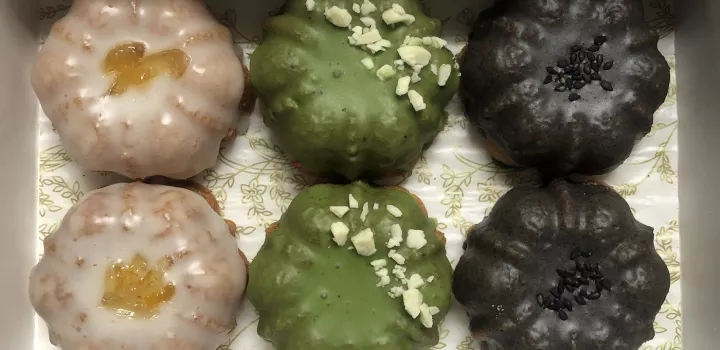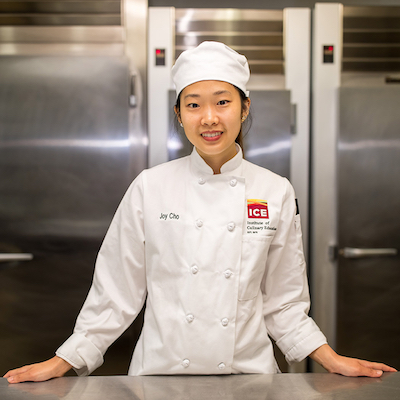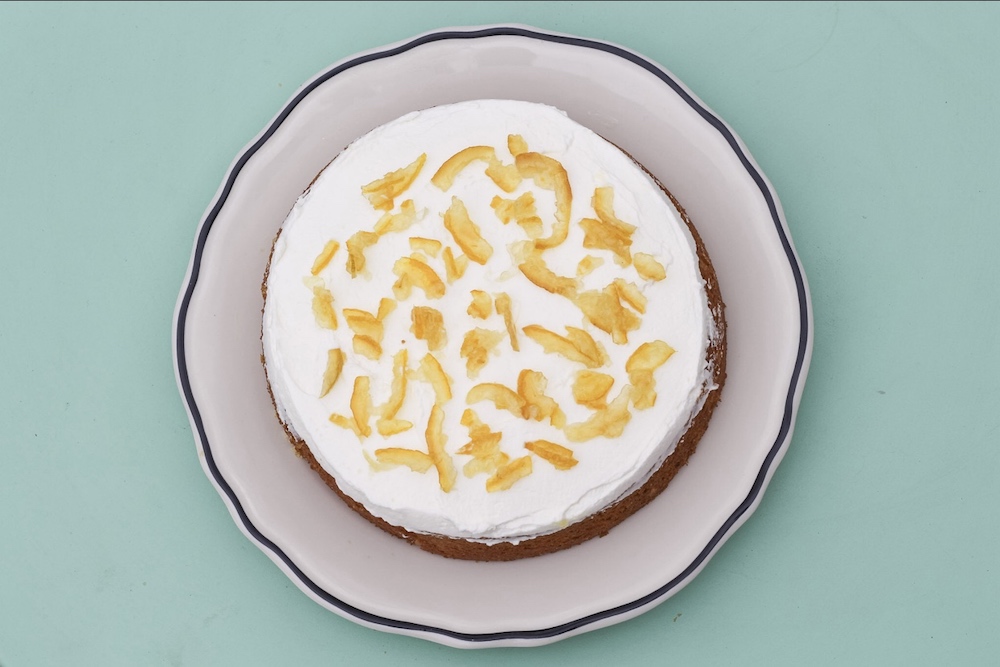
ICE Alum Joy Cho Connects with Korean Culture through Food
The Pastry & Baking Arts grad is expressing her Korean-American identity.
Joy Cho describes how she's experienced Korean ingredients and dishes in a new way as a pastry professional.
 The recent disturbing uptick in violence and hate against Asians and Asian Americans has prompted not only rightful indignance from our community but also a deeper examination into questions of our identity and experience in America. Asian Americans have, in large part, been conditioned to brush off racially insensitive or overtly racist incidents and move on instead of acknowledging the experiences for what they are. Because they probably didn’t know better. Perhaps they didn’t really mean it that way. Maybe I’m reading too much into it. The result is often a sense of erasure and/or a perpetuation of these racist attitudes and behaviors.
The recent disturbing uptick in violence and hate against Asians and Asian Americans has prompted not only rightful indignance from our community but also a deeper examination into questions of our identity and experience in America. Asian Americans have, in large part, been conditioned to brush off racially insensitive or overtly racist incidents and move on instead of acknowledging the experiences for what they are. Because they probably didn’t know better. Perhaps they didn’t really mean it that way. Maybe I’m reading too much into it. The result is often a sense of erasure and/or a perpetuation of these racist attitudes and behaviors.
Personally, my Korean-American identity was something that I didn’t dwell on much growing up. I attended K-12 at a predominantly white school in central Ohio and went to a Korean church where I regularly saw people who looked like me. In hindsight, although I wasn’t actively ashamed of my Asian-ness (most of the time), I was subconsciously minimizing that part of my identity at school. When I did sometimes overhear racially driven comments from my peers, I’d try to ignore them — and ignored my own anxiety that something similar would be spoken in my earshot again. If I kept my head down, worked hard and got into a good college, that’s all that mattered (or so I thought).
It wasn’t until I pivoted to the food industry in 2019, and more recently spun off on my own with Joy Cho Pastry, that I’ve come to a place of truly appreciating and centering my heritage. As a pastry chef, I didn’t want to box myself in with a strictly Asian-inspired concept, but over time, I realized that using Korean or Asian ingredients not only excited me, it further connected me to my roots.

Infusing more “traditional” bakes with Asian flavors, in a way that preserves the integrity of both, has become a tangible way of showcasing my identity. Now, items like misugaru (Korean roasted multigrain powder) and yuja (Korean jarred citron tea) are mainstays in my kitchen, and I love being able to incorporate them into recipes and products I share with the public while allowing myself the freedom to work with non-Asian ingredients as I please.
Freelance writing has been another valuable outlet for expressing myself, and in turn, inspiring others to experience parts of my culture, whether in the form of creamy tomato-gochujang pasta, lemon-yuja cake or gyeran bap (Korean egg rice).
I’ve also been increasingly interested in re-exploring dishes I grew up with and approaching them with hands-on curiosity. For example, I never thought I could develop a recipe for one of my favorite banchan, musaengchae, or make sujebi (Korean hand-torn noodle soup) from scratch — but tapping into my mom and grandma’s wealth of wisdom and allowing myself to experiment in the kitchen has shown me that I too can cook Korean dishes, and that’s really empowering. Like learning to speak one’s mother tongue or cracking a code, making Korean food gives me a certain satisfaction and helps me grow deeper into my Koreanness. It’s also a plus that I don’t have to wait until the next time I go home to taste homemade versions of these foods, though it’s no question that my mom and grandma make them better!
Processing and living out one’s identity is always a work in progress, but I’m incredibly grateful to have the platform I do to share pieces of myself through food and writing. It’s freeing to be unequivocally proud of where I come from, and gratifying to see other Asian-American chefs and restaurateurs center, prioritize and showcase their cultures, whether through social media, menu curation or participation in projects like With Warm Welcome’s Bakers Box. The strength of the Asian and Asian-American culinary community here in New York is undeniable, and I’m so lucky to be part of that fabric. Food has always been a powerful, compelling medium — and we need to tap into its relevance and joy now more than ever.
Joy changed careers with night classes in ICE's Pastry & Baking Arts program. Learn more here.
Joy changed careers with night classes in ICE's Pastry & Baking Arts program. Learn more here.
May is Asian American and Pacific Islander Heritage Month. You can watch the recap of our Instagram Live with ICE alumni from the AAPI community below.


Add new comment